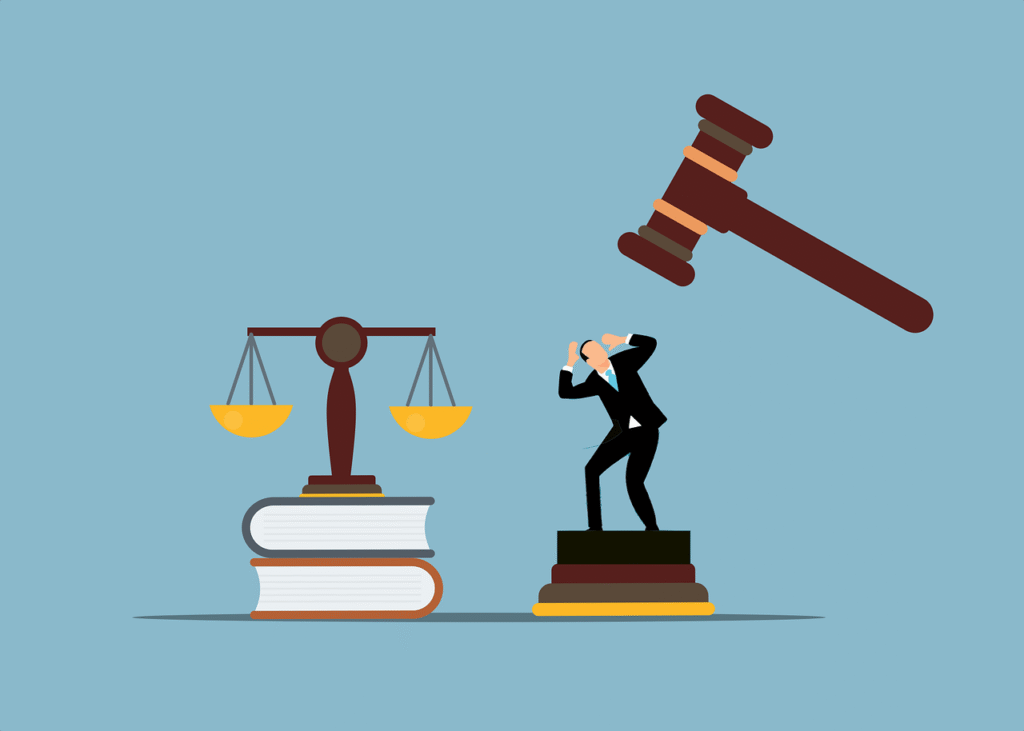Starting and running a business involves much more than just offering a great product or service. It also requires navigating a complex legal landscape to ensure that your business is compliant with all applicable laws. Whether you’re a startup entrepreneur or a seasoned business owner, understanding and addressing potential legal pitfalls is essential for the long-term success of your business.

Legal missteps, no matter how small, can cripple even the most promising business. From contracts to compliance, understanding and avoiding common pitfalls isn’t just smart, it’s essential to survival and long-term success.
Business law encompasses a wide array of regulations, from contracts and intellectual property to employee rights and environmental law. Below are some of the most common business law pitfalls that entrepreneurs often face, along with tips on how to avoid them.
Failing to Properly Form Your Business Structure
One of the first and most crucial decisions for a new business owner is choosing the right legal structure. Whether you choose to operate as a sole trader, partnership, limited liability partnership (LLP), or limited company, each structure has different legal and financial implications.
For example, if you operate as a sole trader, you’re personally liable for any business debts. This means your personal assets could be at risk if the business faces financial difficulties. On the other hand, a limited company offers limited liability, protecting your personal assets. However, this structure involves more complex tax filing requirements and administrative tasks.
To avoid this pitfall, carefully consider your options and consult with a business attorney or accountant to ensure that you choose the right structure for your needs. Keep in mind that your business structure can affect taxes, liability, and your ability to raise capital.
The UK Government offers a variety of resources to help entrepreneurs navigate the process of setting up a business, including detailed information on business structures and legal requirements. Visit UK Government Business Support for more guidance.”
Inadequate Contractual Agreements
Contracts are the backbone of any business relationship, whether it’s with suppliers, clients, employees, or partners. Yet, many businesses fail to formalize agreements in writing or rely on poorly drafted contracts that leave them exposed to legal disputes.
A well-drafted contract outlines the terms of the agreement, including payment terms, delivery schedules, confidentiality clauses, intellectual property rights, and dispute resolution procedures. Failing to have these terms in writing can lead to misunderstandings or costly legal battles down the road.
To avoid issues, always have a formal written contract for any significant business relationship. It’s also important to review contracts regularly, as laws and business circumstances can change over time. If you’re unsure about the legal language in a contract, consult with a legal professional to ensure you’re protected.
Neglecting Intellectual Property Protection
In today’s knowledge-based economy, intellectual property (IP) is one of a business’s most valuable assets. Yet, many entrepreneurs neglect to protect their intellectual property, leaving themselves vulnerable to theft or misuse.
Whether it’s your company’s logo, product designs, trademarks, or software code, your IP needs to be secured. Trademark registration, copyright protection, and patents are all essential steps in ensuring that your business’s intellectual property is protected from infringement.
Failing to properly protect your intellectual property can lead to significant financial loss if competitors steal or copy your ideas. By registering your IP and enforcing your rights, you can prevent others from using your creations without permission.
Non-Compliance with Employment Laws
As your business grows and you hire employees, it’s crucial to understand and comply with employment laws. This includes understanding workers’ rights, minimum wage requirements, holiday pay, and anti-discrimination laws. Failure to comply can result in lawsuits, fines, and reputational damage.
For instance, improperly classifying an employee as an independent contractor could lead to penalties from the tax authorities. Similarly, failing to provide appropriate workplace accommodations for employees with disabilities could lead to discrimination claims.
To avoid these pitfalls, ensure that you have clear policies in place for hiring, managing, and terminating employees. Familiarize yourself with the relevant employment laws and consult with an HR specialist or employment attorney to ensure that your business is compliant.

Ignoring Consumer Protection Laws
As a business, you are responsible for ensuring that your products or services are safe and accurately represented. Consumer protection laws are designed to safeguard customers from misleading advertising, unsafe products, and unfair business practices.
If your product is faulty or if your marketing is deceptive, you could be held liable for damages. It’s important to clearly communicate the terms of sale, product warranties, and return policies. If you operate in certain industries, such as food or pharmaceuticals, you may need to comply with specific regulatory requirements to ensure the safety and efficacy of your products.
Make sure your marketing materials are truthful and that your products meet the necessary safety standards. Additionally, always provide clear and fair customer service policies to avoid potential legal issues.
Failing to Comply with Tax Obligations
Tax compliance is a crucial aspect of business operations that many entrepreneurs overlook, particularly in the early stages of their business. Tax laws are complex and vary depending on your business structure, location, and the type of business you operate. Failing to file taxes correctly or on time can result in penalties, interest charges, and even legal action.
Make sure you stay on top of your tax obligations, including income tax, VAT, National Insurance contributions, and payroll taxes. Many small businesses benefit from working with an accountant to ensure accurate tax filings and to minimize their tax liability.
In addition, be aware of tax credits, deductions, and incentives that could benefit your business, such as research and development tax relief or capital allowance claims.
Overlooking Data Protection and Privacy Laws
In an increasingly digital world, data protection and privacy laws have become critical. Whether you’re collecting customer information online or managing employee records, your business must comply with data protection regulations, such as the General Data Protection Regulation (GDPR) in the UK and Europe.

Failing to protect customer data can lead to hefty fines and damage to your reputation. If your business handles sensitive personal information, you must implement measures to safeguard that data, such as encryption and secure storage practices.
To stay compliant, make sure you have clear privacy policies in place, inform customers about how their data will be used, and take steps to secure any personal data you collect.
Conclusion
While starting and running a business can be incredibly rewarding, it’s also filled with legal challenges. By understanding and addressing common business law pitfalls, you can avoid costly mistakes and set your business up for long-term success. Whether it’s forming the right business structure, securing intellectual property, complying with employment laws, or staying on top of tax obligations, taking proactive legal steps is key to protecting your business and its future.
If you’re unsure about any aspect of business law, it’s always a good idea to consult with a legal professional who can guide you through the complexities and help safeguard your business from legal trouble.
If you have any questions or would like to connect, you can fill the contact form via the ‘Reach Out’ link below. You can also follow me on the social platforms below.
Disclaimer
The information provided on this website is for general informational and educational purposes. It does not constitute legal advice or create a solicitor-client relationship. No financial or legal responsibility is assumed for reliance on this content. For personalized legal advice, consult a qualified solicitor.


